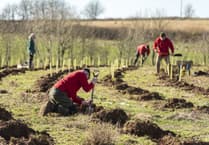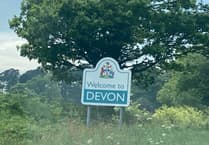Recently a conference was held at the University of Plymouth about the problem of the hidden homeless.
Dr Mike Sheaff of the University of Plymouth explained:
“We were looking at the hidden homeless, those not meeting the statutory definition of homeless but those living in inadequate or inappropriate accommodation.
“They may be perhaps living with family or friends, sofa surfing is a term often used but it’s much wider than that.
“We’re looking at potential opportunities to prevent becoming actually homeless before it reaches that stage.
Several people were interviewed in depth as Dr Sheaff explained: “One person in their early forties had a business which was successful until the pandemic, the business collapsed which meant he had to give up his accommodation.
“His parents lived nearby and he managed to move in with them.
“He’s now started another business which requires him to be in that area but the rents are astronomic.
“Even though his business provides him with a reasonable income he can’t reach the kind of rent levels that are being asked.
“His mother commented that there are people who have received Section 21 no fault evictions ostensibly because the landlord is going to put the building on the market for sale but very often they go back on the market at a higher rent.”
Those who are regarded as literally homeless should be provided with some kind of temporary accommodation.
There are many whose plight may not be quite so bad but they are in a very precarious situation and there are thought to be many more of them.
There are physical and especially mental health consequences.
Not only is problems and distress being caused by the precarity of inadequate accommodation but it is also putting pressure on services for those health needs.
That was a recurring theme.


.jpeg?width=209&height=140&crop=209:145,smart&quality=75)


Comments
This article has no comments yet. Be the first to leave a comment.